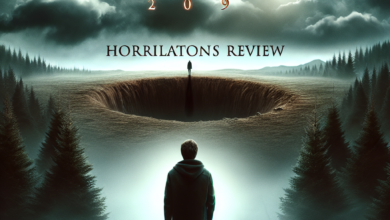Movie Review: The Fly (1986)
Synopsis
Directed by David Cronenberg and released in 1986, The Fly is a science fiction horror film that delves into the themes of transformation, identity, and the consequences of human ambition. The narrative revolves around Seth Brundle, a brilliant but socially awkward scientist who is engaged in groundbreaking research on teleportation. He is portrayed by the acclaimed Jeff Goldblum, whose performance is both haunting and compelling.
Brundle creates a teleportation device that he believes will revolutionise travel. However, during a demonstration of his invention, he unwittingly becomes part of a harrowing experiment. When a fly accidentally enters the teleportation pod with him, it triggers a horrific genetic merging, resulting in Seth slowly transforming into a human-fly hybrid. As the physical changes begin to manifest, Seth grapples not only with his alarming transformation but also with the implications it holds for his relationship with journalist Veronica Quaife, played by Geena Davis. Their romance forms an emotional core of the film, heightening the stakes as Seth’s condition deteriorates and becomes increasingly grotesque.
As Seth’s metamorphosis accelerates, he faces growing physical and psychological challenges, ultimately leading to an exploration of what it means to be human, as well as the costs associated with scientific exploration without ethical consideration. The effects of his transformation are depicted in graphic and disturbing detail, making the film not just a frightful experience but also a poignant commentary on isolation and the fear of losing one’s identity.
Actors
- Jeff Goldblum as Seth Brundle
- Geena Davis as Veronica Quaife
- John Getz as Stathis Borens
- Joy Behar as the Talk Show Host
- Peter Lorre as the Man in the Bar (uncredited)
Conclusion
The Fly stands as a seminal piece in the repertoire of 1980s horror cinema and is often lauded as one of David Cronenberg’s masterpieces. It is distinguished by Goldblum’s staggering performance, which traverses physical comedy, tragic pathos, and raw horror as he embodies the gradual loss of humanity within his character. Geena Davis offers a strong counterbalance as Veronica, successfully conveying the emotional turmoil that accompanies her loss of the man she loves to the grotesque reality of his transformation.
Cronenberg’s deft direction melds science fiction with body horror, making the film not merely a tale of monstrous change but an exploration of human frailty and the desperate search for acceptance. The practical effects by Chris Walas are groundbreaking, and they contribute to a visceral experience that remains impactful even by contemporary standards.
Moreover, The Fly raises uncomfortable questions about the limits of scientific pursuit and the ethical implications of technology in a world increasingly reliant on rapid advancements. It serves as a cautionary tale about the unfettered ambition of humanity and the potentially devastating consequences of playing god.
Scoring the film is a challenging task due to its multifaceted approach to horror and storytelling. However, taking into account the acting, direction, narrative depth, and lasting cultural impact, I would rate The Fly a 9/10. It remains an exceptional blend of emotional depth and monstrous horror, ensuring its place as a classic in cinematic history.





